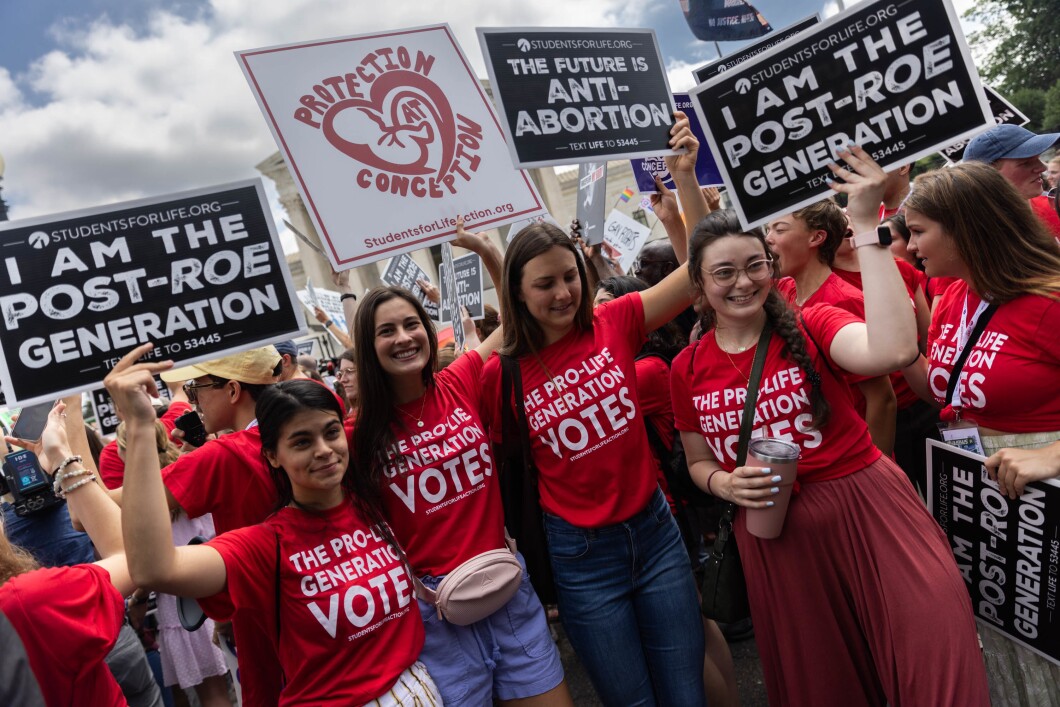
As Tennessee, Texas, and Idaho had near-total abortion bans go into effect this week, a judge blocked North Dakota‘s similar law that was slated to take effect on Friday.
Judge Bruce Romanick of the South Central Judicial District in Burleigh County issued a preliminary injunction on North Dakota’s so-called trigger abortion ban to maintain the status quo while a legal challenge plays out in court. The state presently permits abortion procedures on pregnant women up to 22 weeks post-fertilization.
Had North Dakota’s ban gone into effect this week, it would make it a felony to conduct an abortion unless the life of the mother is at risk or in cases involving rape or incest.
IDAHO CAN’T ENFORCE ABORTION BAN IN MEDICAL EMERGENCIES

And while much of Idaho’s near-total abortion ban went into effect Thursday, U.S. District Judge B. Lynn Winmill barred the state from enforcing the strictest facet of the ban one day before, disallowing the state from prosecuting anyone who is performing an abortion in an emergency medical situation.
Winmill was responding to a lawsuit filed by the Justice Department, which was the first legal action by the federal government against a state since the Supreme Court overturned Roe v. Wade in June.
The Idaho ruling Wednesday evening came one day after a Texas federal judge made an opposite ruling over a similar law. U.S. District Judge James Wesley Hendrix blocked the federal government Tuesday from enforcing one interpretation of the Emergency Medical Treatment and Labor Act that would demand hospitals in Texas to carry out abortions in situations where the health or life of the mother is at risk.
Oklahoma also saw its restrictive abortion law go into effect Thursday, as the state now imposes harsher criminal penalties than a separate trigger ban that was previously in effect. Abortion providers who perform such procedures are subject to a felony charge punishable by a $100,000 fine and up to 10 years in prison.
Since the Supreme Court’s June 24 ruling in Dobbs v. Jackson Women’s Health Organization, which allowed states to impose laws severely limiting or restricting abortions, at least 12 states have near-total bans in place as of Friday, according to an NBC News interactive map.
Florida, Georgia, and Ohio have measures that classify abortion as “restricted.” Florida imposes gestational limits at 15 weeks since the last menstrual period for women seeking abortion, while the latter states cap the limit at six weeks.
Arizona, Utah, Wyoming, Michigan, Indiana, South Carolina, and now North Dakota all have laws that would severely limit or restrict abortion, though each state is locked in various court battles as judges consider challenges to laws.
White House press secretary Karine Jean-Pierre released a statement Friday rebuking states with abortion trigger bans that took effect this week, saying, “These extreme bans will criminalize abortion, in some cases without exceptions for rape or incest.”
CLICK HERE TO READ MORE FROM THE WASHINGTON EXAMINER
She called on Congress to “act immediately” to pass laws that would restore protections under Roe v. Wade, which was overturned by a 6-3 high court vote in the Dobbs case.
“Today’s radical steps take away women’s reproductive rights and put personal healthcare decisions in the hands of politicians instead of women and their doctors, threatening women’s health and lives. Americans need to know that these and other fundamental rights, including the right to contraception and marriage equality, are at risk,” Jean-Pierre said.






